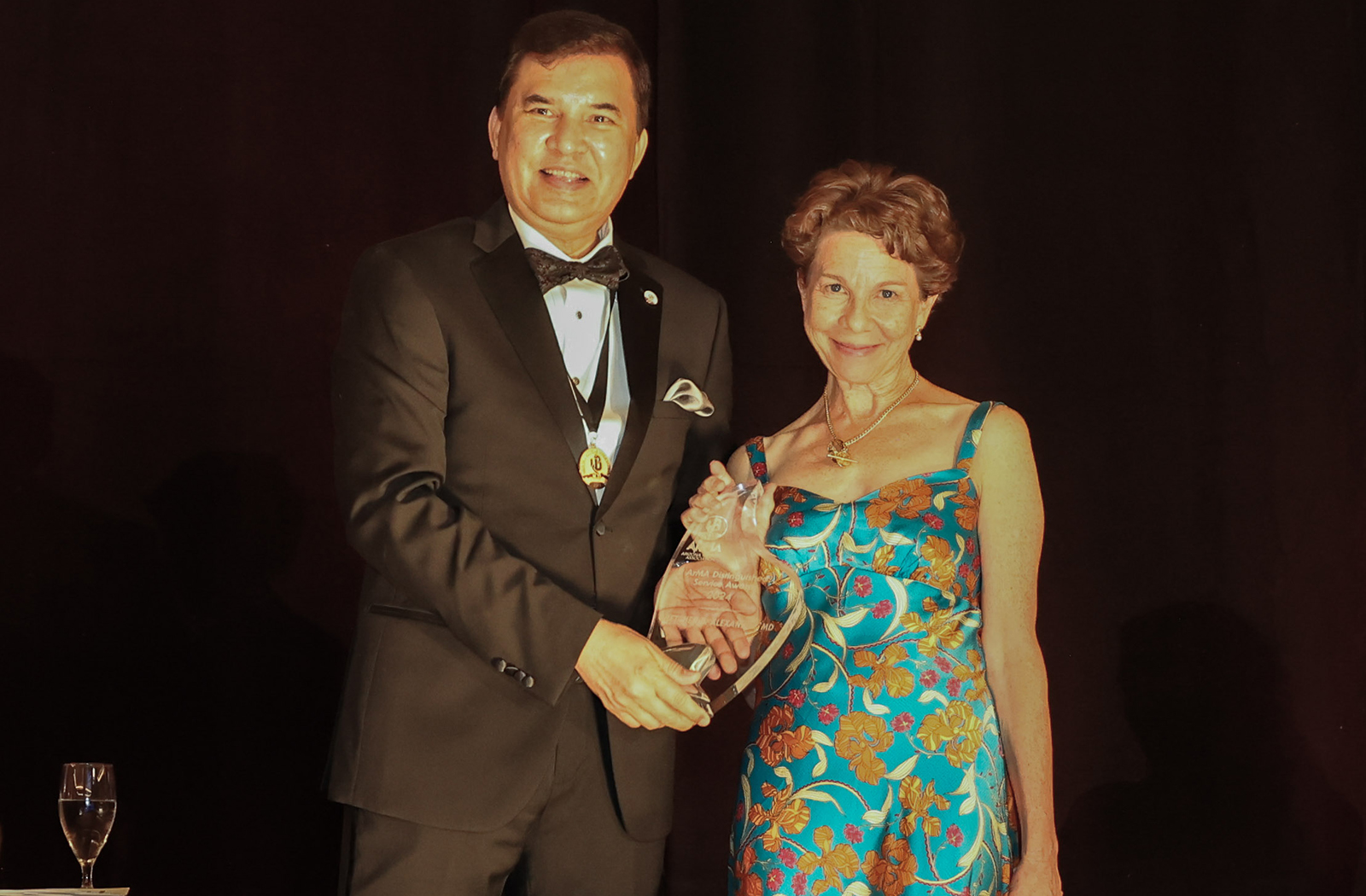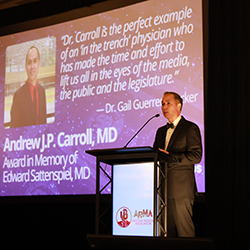
ArMA's Inaugural Heartbeat Gala Recognizes Four Members of College’s Faculty

The Arizona Medical Association (ArMA) hosted its inaugural Heartbeat Gala and recognized four members of the University of Arizona College of Medicine – Phoenix’s faculty among its list of award recipients for the 2024 ArMA Health Care Awards.
The Heartbeat Gala celebrated exemplary Arizona individuals, physicians and organizations who are the driving forces of medicine, from advocacy to education to community. The black-tie event also raised funds to benefit the ArMA Foundation.
Meet the Award Recipients
Andrew J. P. Carroll, MD
Dr. Carroll — an assistant clinical professor for the U of A College of Medicine – Phoenix’s Department of Family, Community and Preventative Medicine — received the Award in Memory of Edward Sattenspiel, MD.

Dr. Carroll was selected for his work as a strong and consistent advocate for beneficial health policy, both locally and nationally, within the American Academy of Family Physicians.
“It’s through mentorships and opportunities available only through our professional organizations that we find our newest leaders,” Dr. Carroll said. I’m happy to see ArMA enhancing opportunities for our young students and physicians by encouraging leadership tracks for our newest advocates.”
Daniel J. Briceland, MD
Dr. Briceland received the National Leadership Award from ArMA for his service as the 127th president of the American Academy of Ophthalmology. Dr. Briceland’s term as president was characterized by a passion that led the academy to witness unprecedented engagement levels.
According to the nomination, Dr. Briceland’s leadership was instrumental to the academy’s efforts to “address scope of practice and foster comprehensive mentorship for aspiring ophthalmologists.”
Craig D. Norquist, MD
Dr. Norquist, a clinical assistant professor for the college’s Department of Biomedical Informatics, was awarded the Public Health Service Award. ArMA recognized Dr. Norquist for his extensive efforts to address public health issues — such as opioid prescriptions.

“To be honored with this award means so much to me because a roomful of mentors recognizing you means so much more than anything else,” Dr. Norquist said. “Public health is often overlooked, but it’s so crucially important. There’s so much more that we can do and will do if we do it together.”
Gretchen B. Alexander, MD
The final award presented of the evening was the Distinguished Service Award, which is the organization’s highest honor. Dr. Alexander, an associate clinical professor in the college’s Department of Psychiatry, was recognized for her outstanding service to the community.
A board-certified psychiatrist, Dr. Alexander served as ArMA President from 2017–2018. An advocate of organized medicine in the community, ArMA noted that throughout her career, Dr. Alexander made a significant impact within Arizona’s health care community.
For Dr. Alexander, the most pressing issue for medicine is the fragmented state of the health care delivery system for patients and physicians.
“The level of dysfunction in the health care delivery system is an incredibly complex problem that has multiple causes, so it’s going to be complicated to fix,” Dr. Alexander said. “I’m not really sure what the solution is, but I do feel like organized medicine associations, like ArMA, have an important role to play in connecting physicians with legislators who are in a position to get laws passed and create a functional health care system.”
Topics
About the College
Founded in 2007, the University of Arizona College of Medicine – Phoenix inspires and trains exemplary physicians, scientists and leaders to advance its core missions in education, research, clinical care and service to communities across Arizona. The college’s strength lies in our collaborations and partnerships with clinical affiliates, community organizations and industry sponsors. With our primary affiliate, Banner Health, we are recognized as the premier academic medical center in Phoenix. As an anchor institution of the Phoenix Bioscience Core, the college is home to signature research programs in neurosciences, cardiopulmonary diseases, immunology, informatics and metabolism. These focus areas uniquely position us to drive biomedical research and bolster economic development in the region.
As an urban institution with strong roots in rural and tribal health, the college has graduated more than 1,000 physicians and matriculates 130 students each year. Greater than 60% of matriculating students are from Arizona and many continue training at our GME sponsored residency programs, ultimately pursuing local academic and community-based opportunities. While our traditional four-year program continues to thrive, we will launch our recently approved accelerated three-year medical student curriculum with exclusive focus on primary care. This program is designed to further enhance workforce retention needs across Arizona.
The college has embarked on our strategic plan for 2025 to 2030. Learn more.